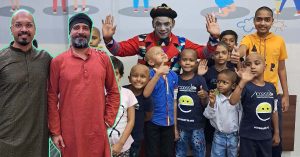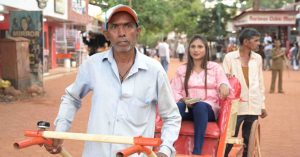A Mobile Creche Cares For Kids of Migrant Labourers Till They Are 18, Helps Them Get Stable Jobs
With a belief that every child has the fundamental right to education, health care, and a secure future, Tara Mobile Creches Pune has been working for the holistic development of children of migrant families. With its mobile crèches, it has catered to 1 lakh such kids.
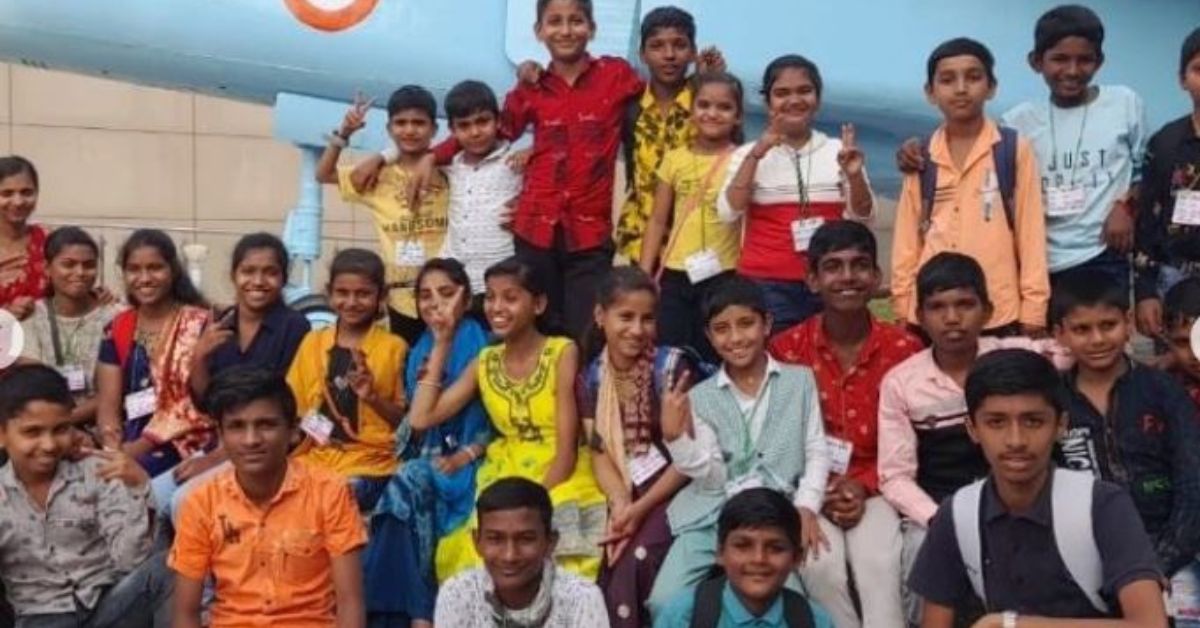
Every year, thousands of migrant workers leave the comforts of their homes to move to other cities in search of livelihood. Amid the sounds of sledge hammers and bulldozers, their young children are exposed to child labour, poor academic achievements, and well-being.
“The government is expected to provide daycare facilities to these children of migrant labourers at the construction sites but most of the time, a dai or mausi is hired to look after these children. It is to be noted that these women lack skills or training to give attention to the nurturing and growth of children,” Manjusha Doshi, chief executive officer of Tara Mobile Creches Pune, tells The Better India.
“There is ignorance at the parent level as they get busy in their construction work. If they leave the work, then they lose their daily wages,” she adds.
In a commendable move, the nonprofit has set up mobile crèche-and-daycare centres at the construction site so the mothers could safely leave their children involved in activities enabling their holistic development.
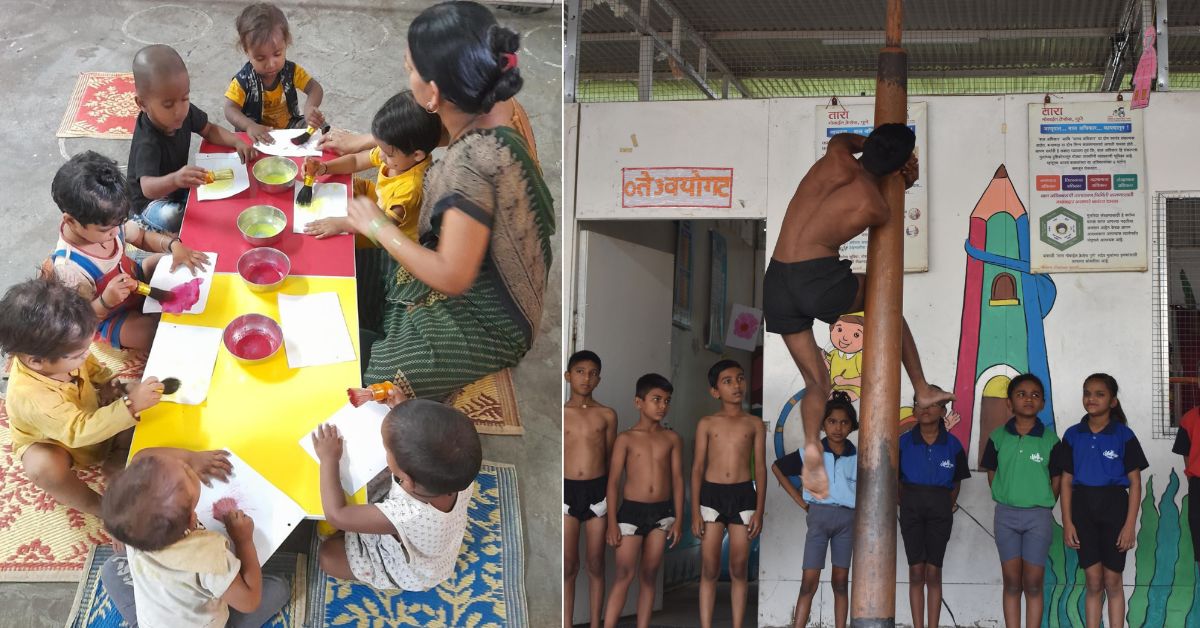
While the organisation focuses on children in the age group of 0-18 years, it also assists students in pursuing higher education and landing stable jobs. So far, the organisation has reached out to at least 1,16,621 children of migrant families with its 16 mobile creches established in and around Pune city.
In conversation with The Better India, Manjusha Doshi reveals how their mobile creches are transforming the lives of children of migrant workers.
For holistic development of migrant children
Established in 1980 by Sindhutai Sawardekar, Tara Mobile Creches Pune works in partnership with builders, contractors, donors, CSR companies, and volunteers to run daycare centres in the city.
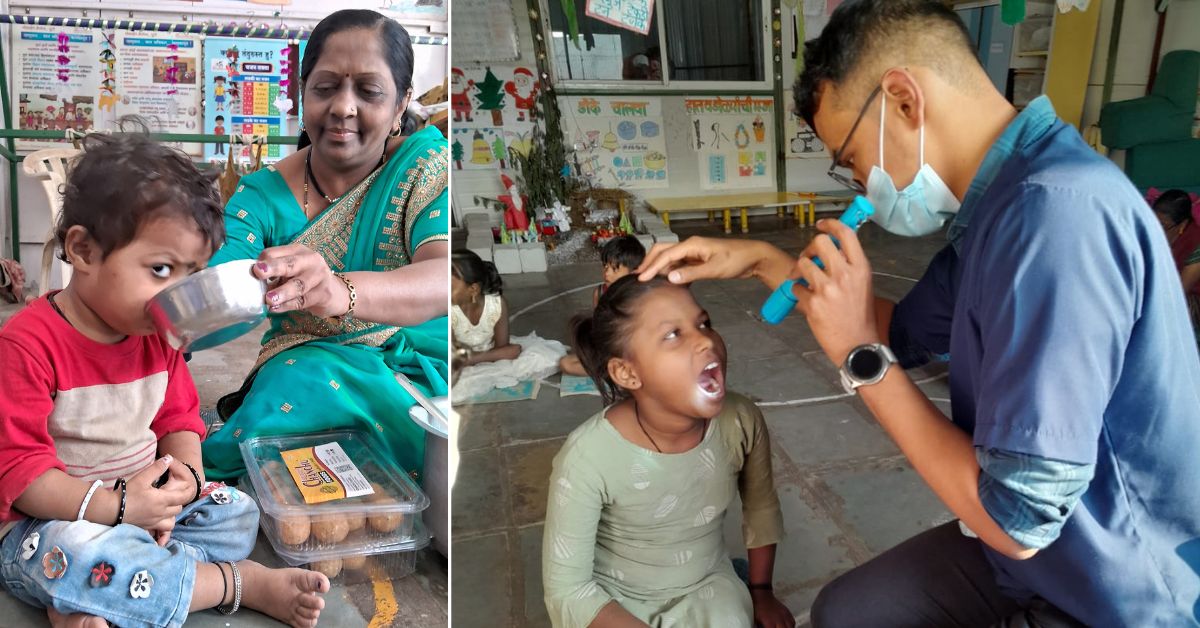
It works on three pillars: health, nutrition, and education. This includes weighing children and providing special meals for those who are malnourished, visiting the doctor for regular checkups, providing age-appropriate pre-learning activities and education, and engaging parents and community members in overall child-development.
Manjusha says, “We conduct general health checkups of all the children monthly as well as of the pregnant and lactating mothers to minimise their morbidity. While minor illnesses are taken care of at the daycare, we accompany them to the hospital for treatment in serious cases. We also focus on the nutrition of malnourished children.”
At these mobile creches, the children are provided with age-appropriate nutrition three times a day, including milk, rice, pulses, legumes, vegetables, and fruits.
“Apart from this, we help these children enrol in government schools so that they are engaged in the mainstream of education. At times, children of these migrant families coming from states like Rajasthan, Bihar, Odisha, West Bengal, and Karnataka, do not have necessary documents like Aadhaar cards and birth certificates. Our programme coordinators help facilitate such admissions,” she says.
“We also have additional coaching classes at the daycare centre where teachers take tuition to enhance the foundational learning that gets affected because of late schooling,” she adds.
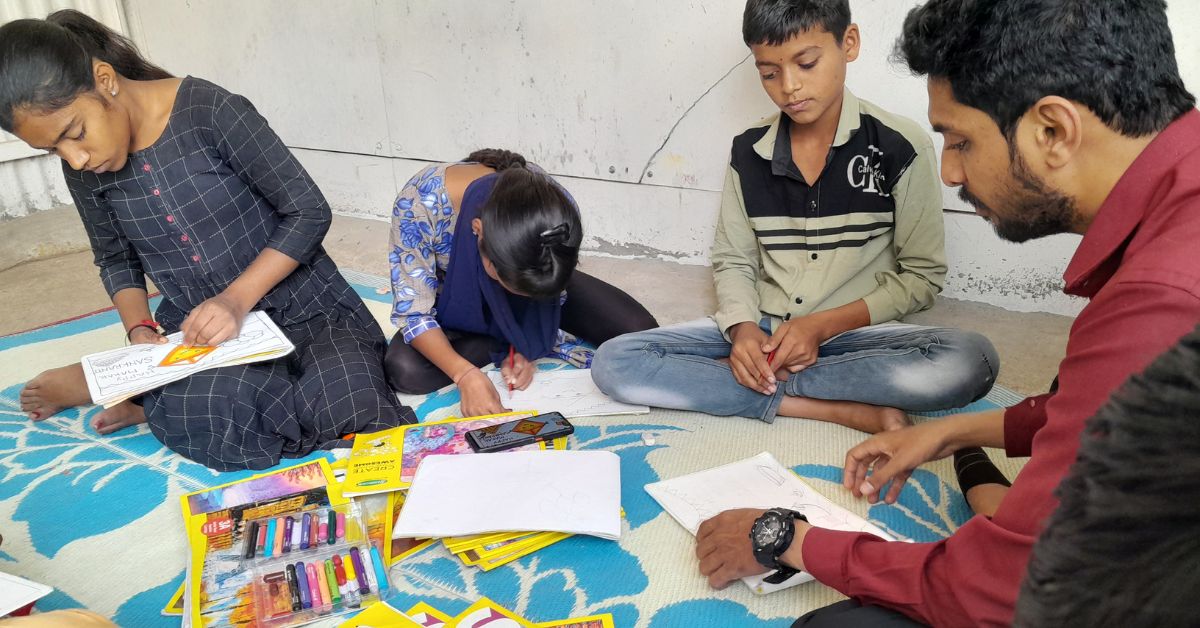
Furthermore, the non-profit also conducts various non-academic activities to capture their interest for example – arts and crafts, painting, street plays, sports and music-related activities.
Manjusha informs that the non-profit continues to assist these children until the construction work nears completion. The migrant families move on and so do these mobile creches.
Escaping lives of drudgery to become leaders
Interestingly, the nonprofit assists students till they attain adulthood and secure a stable future. Manjusha says, “While their families frequently migrate, we offer the support of a residential education facility where the child will be put into a hostel and could continue their education irrespective of the working sites of their parents.”
“After they complete their class 12, we keep in touch with most of our children. We also conduct an aptitude test and according to the test results, we guide them to pursue higher education in their fields of interest. Although there is no formal vertical, we keep a very close watch on these students and extend our support whenever needed. To some extent, we have also helped our children get stable jobs with the help of our sponsors, NGOs, and builder partners,” she adds.
For instance, Smita (name changed), who was once rescued from child marriage, is now working in a non-banking financial company with the support of the nonprofit. She tells The Better India, “I have been associated with this organisation since I was 5 years old. Initially, they helped me enrol in a government school. After completing class 10, when I went back to my hometown, I was informed that my marriage had been fixed with a man who was 10 years older than me. At my haldi ceremony, a team from the NGO came to my rescue, and with the help of the police, my marriage was stopped.”
“Thereafter, I came back to Pune and continued my higher studies till class 12 and secured a job in a bank. Whatever I am today is because of the efforts of this NGO,” she smiles. If you found our stories insightful, informative, or even just enjoyable, we invite you to consider making a voluntary payment to support the work we do at The Better India. Your contribution helps us continue producing quality content that educates, inspires, and drives positive change. Choose one of the payment options below for your contribution- By paying for the stories you value, you directly contribute to sustaining our efforts focused on making a difference in the world. Together, let’s ensure that impactful stories continue to be told and shared, enriching lives and communities alike. Thank you for your support. Here are some frequently asked questions you might find helpful to know why you are contributing?

Talking about the long-term impact post-handholding, Manjusha says, “Recently, we organised an alumni meet of our 200 students. It was really overwhelming for me to learn how these children are doing well in their lives. Some of them are working with multinational companies, some of them have become principals of schools, and some are working at the construction site, but as civil engineers and not as labourers. The impact motivates us to keep on going.”
Edited by Padmashree Pande. All photos: Manjusha Doshi.
This story made me
- 97
- 121
- 89
- 167




